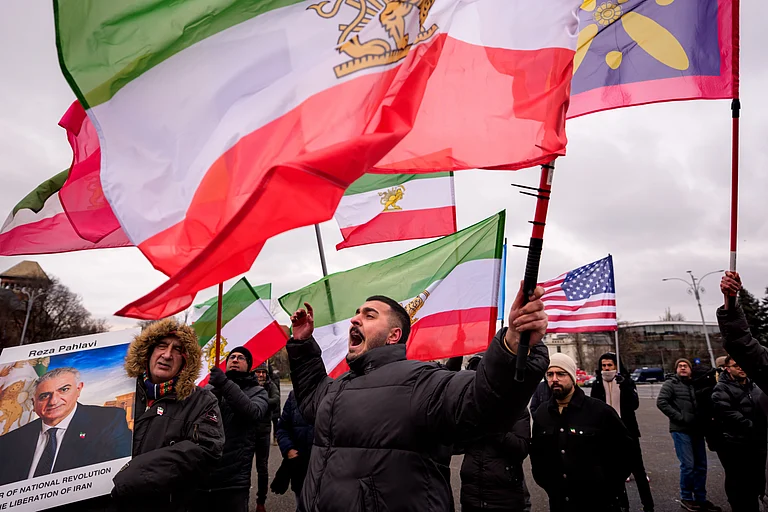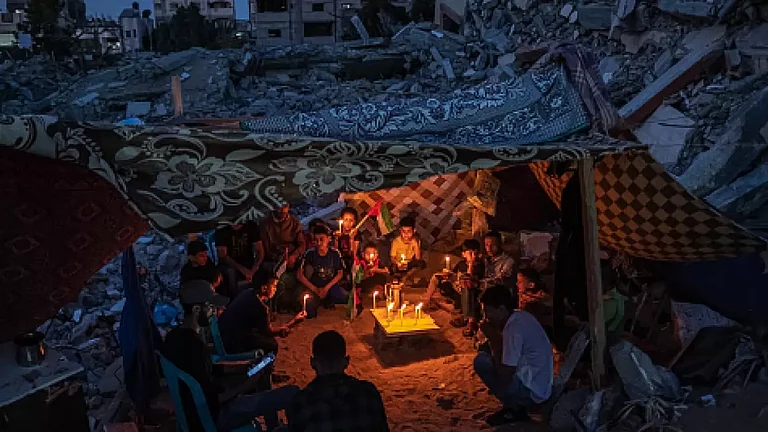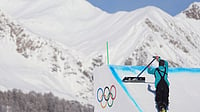Israeli troops carried out an airstrike in the northern West Bank on Sunday, killing a Palestinian militant and wounding five other people, Palestinian health officials said.
The strike took place in Nur Shams, an urban refugee camp that has been a frequent target of the Israeli military and is known as a stronghold of Palestinian militants. The state-run Palestinian news agency Wafa said an Israeli drone fired three missiles and struck a house.
Islamic Jihad identified the dead man as Saeed al-Jaber, one of its local commanders. Wafa said he had escaped a previous drone strike on June 20. There were no details on the identities of the wounded. Health officials said two were in critical condition.
The Israeli military confirmed an attack on the home, saying that militants inside, including al-Jaber, were responsible for recent attacks on Israeli targets.
The occupied West Bank has experienced a surge in violence since the war in Gaza erupted in October. The Palestinian Health Ministry says over 500 Palestinians have been killed by Israeli fire in the West Bank since the start of the war. Most have been killed during Israeli raids and violent protests. The dead also include bystanders and Palestinians killed in attacks by Jewish settlers.
Israel launched an aerial and ground offensive in Gaza in response to the Hamas attack on southern Israel on October 7 that killed 1,200 people and took 250 others hostage. More than 37,800 Palestinians have been killed in the offensive, according to Gaza's Health Ministry, which doesn't distinguish between civilians and combatants in its toll.
Israeli forces have been battling Palestinian militants in an eastern part of Gaza City, Shijaiyah, in recent days. Israel returned to the neighbourhood last week, months after saying it had completed operations in the area.
Hamas has repeatedly regrouped in hard-hit areas after Israeli troops pulled out, raising questions about Israel's commitment to destroying the militant group's military capabilities.
The latest operation has sent thousands of residents fleeing. The army said Sunday it has killed dozens of militants in “close-quarters combat” and airstrikes, and confiscated weapons from a hideout it said Hamas had kept in a United Nations-supported school.
Palestinians also continued to flee the area in and around Rafah, the southern Gaza city where Israel says it is in the final stages of an offensive. More than 1.3 million Palestinians have fled Rafah since Israel's incursion into the city in early May.
But with few safe places to go, tens of thousands of people have stayed behind, mostly in outlying areas previously thought to be safe. Large groups of people fled with tents, mattresses and clothes piled on trucks or donkey-pulled carts. Many walked on foot as they searched for shelter. Even places thought to be safe suffer from overcrowding and poor health conditions.
For many Palestinians in the war-torn enclave, it was not their first displacement. They say the experience doesn't get any easier.
“This is the fourth time going from place to place where they (the Israeli military) tells us is a safe area but turns out it isn't," Mohammad Hajjaj told The Associated Press. He was first displaced from Shijaiyah in the early weeks of the war.
Hajjaj said that two days ago, he and his family woke to the sound of Israeli tank fire nearby before leaving. “We slept on the streets,” he said.
The fleeing Palestinians found space on a plot of land in nearby Khan Younis and began setting up their tents alongside dozens of others on the sandy lot.
“We came to Khan Younis from Muwasi,” said Mervette Shamlakh, referring to the Israeli-designated coastal “humanitarian zone" that has little basic services. “It's the same thing again and we had to flee … we have no idea where we are supposed to go."
In Muwasi, scores of men, women and children stood in line for hours as they crowded around trucks and water tanks in the scorching heat to collect their share of drinking and potable water. People said water had always been scarce in the sandy area, even before the displaced Palestinians arrived.
“I'm filling a bottle just like this, to have a liter of drinking water for 16 people who live with me at home,” Issam Al Dayah told the AP as he waited his turn.
“We suffer from everything. Not just water,” said Mai Al Rae after struggling to get through the crowd to fill a bucket. “How long is life going to be like this?”
The fighting has threatened to spread to Israel's northern border with Lebanon, where Israeli forces have been trading fire with Hezbollah militants in daily clashes.
The Israeli military said an explosive drone launched by Hezbollah crashed into the Golan Heights on Sunday, severely wounding a soldier and lightly hurting 17 others. It said Israeli warplanes and artillery units responded by striking Hezbollah targets in southern Lebanon.






_1641819044.jpg?w=801&auto=format%2Ccompress&fit=max&format=webp&dpr=1.0)



















